Birds
Saturday, Aug 21, 2021
Home port: Rockport, Maine
Birds
We were followed by birds all the way across the North Atlantic. Or perhaps it would be more accurate to say we intruded upon birds along the way. Some of them were sea birds a thousand miles from the nearest shore. They could be seen flying near and far from the boat and bobbing in groups on the water, relocating when we got too close. Crew member Brimmer Sherman is an amateur birder and shared his excitement at seeing ocean birds in their natural habitat. The following are some of his notes:
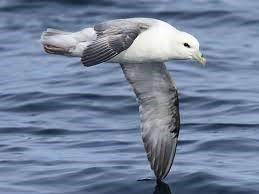
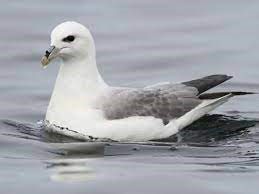
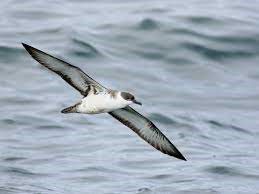
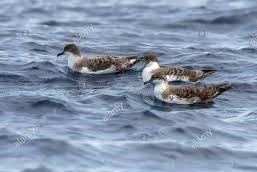
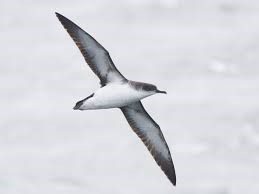
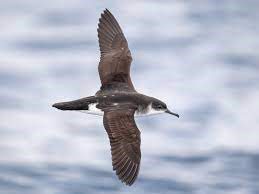
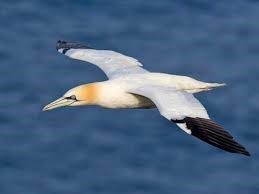
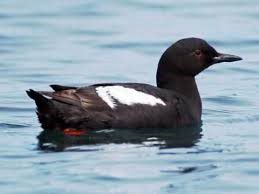
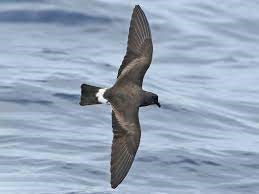
Beautiful birds, all. Tragically, three Storm Petrels were killed during our crossing by the newly installed Marine Kinetix MK4 wind-driven generator on the stern of the boat. The whirling blades literally sliced them to pieces.
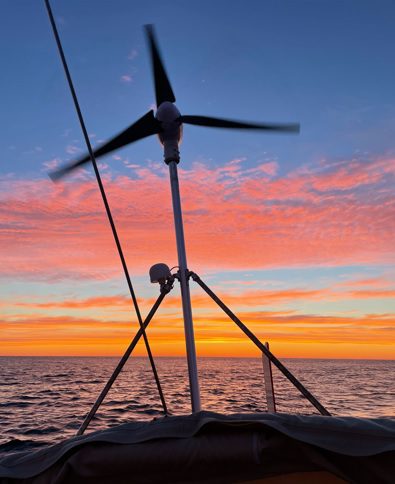
Bird strikes are an inherent danger of wind-driven generators. But three bird fatalities during three weeks at sea is excessive, not to mention very upsetting. The MK4 is a highly efficient and exceptionally quiet unit, whose fast spinning blades become virtually invisible at night. The petrels would soar around boat before making the fatal mistake of trying to land on the housing. We tried using the handheld foghorn to scare them off but it was difficult to see them until too late. At one point, crewmember Brimmer nearly fell overboard in rolling seas trying to rescue a bird. Eventually we shut the unit down after sunset, at the expense of lost power, but eliminating the carnage.
Brimmer suggested that perhaps the birds were attracted by the small but intense blue LED on the MK4’s housing. The reported purpose of this light is to indicate that the unit is charging. This is redundant, since charging is also indicated by the volt meter next to the Nav Station. According to the manufacturer, the charging indicator used to be a dimmer red, but customers reported that it was difficult to see, so they switched to bright blue.
For the next leg from Ireland to the Canaries, we’ll cover the LED with duct tape and hopefully that will solve the problem. Cockpit lighting is typically low-level red to preserve night vision. Having a dazzling blue light glaring above the cockpit makes it more difficult to see the horizon in the dark. It looks very impressive, but is better suited as a marketing device for a boat secured at a marina rather than for one navigating at night.
To their credit, the manufactures have been responsive to our concerns and said that ours was the first report they’d had of bird strikes in their 9 years of production. With that in mind, we’ll report back to them on whether we still have any night strikes after covering the LED. We also had a seagull fly into the blades during the day, while moored at a dock. To reduce that danger, we’ll paint the tips of the blades to make them more visible in the day, similar to the pattern on airplane propellers.
If we continue to have bird strikes, we recommend that Marine Kinetix add LEDs to the blades themselves to make them visible at night. It would increase the cost of the unit, but I believe most owners would be glad to pay the difference if it reduced the danger to birds. (Plus it could only add to the marketing appeal.) If there are other wind generator owners who have data on bird strikes and/or would be willing to pay more for a solution, I encourage you to contact Marine Kinetix at [email protected] .